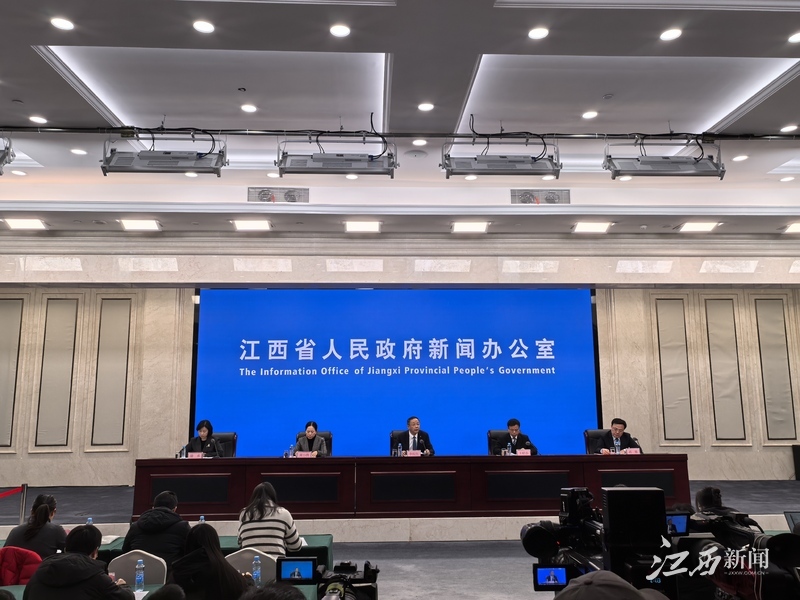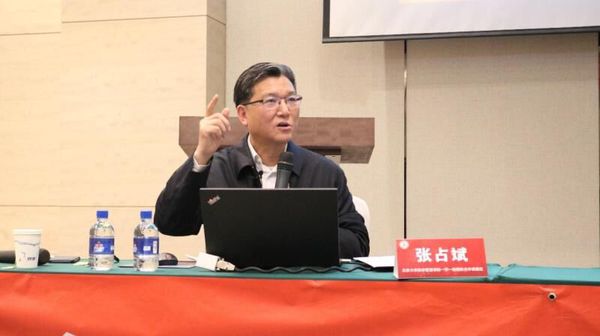China Youth Daily丨Beijing Foreign-related Lawyers: From "bringing In" Services To Helping "going Out"
China Youth Daily丨Beijing Foreign-related Lawyers: From "bringing In" Services To Helping "going Out"
"In the past 30 years of my practice, our foreign-related legal work in the first 10 or 20 years has been more to provide legal services for foreign multinational companies to invest in China. In the past decade, especially after the 'Belt and Road' initiative was proposed, more and more Chinese companies have opened
"In the past 30 years of my practice, our foreign-related legal work in the first 10 or 20 years has been more to provide legal services for foreign multinational companies to invest in China. In the past decade, especially after the proposal of the Belt and Road Initiative, more and more Chinese companies have begun to go overseas, accelerating the pace of internationalization and globalization, and the lawyer group has also played an important role in the process of globalization of Chinese enterprises." In the "'Belt and Road' Rule of Law Co-edge" held by the Ministry of Justice recently and the theme interview of the "'Belt and Road' Rule of Law Cooperation" and Optimizing the Rule of Law Business Environment, Xu Ping, senior partner of King & Wood Malleson Law Firm, told reporters.
As a non-litigation lawyer, Xu Ping witnessed the growth of China's economic strength, and more and more Chinese companies "going out" and shining in overseas markets. "Companies need professional Chinese lawyers who are familiar with China's business culture, national development strategies and regulatory requirements, as their trusted consultants to help them complete various important international transactions." Xu Ping said.
According to Yin Hongwei, Director of the Personnel and Police Department of the Beijing Municipal Justice Bureau, in recent years, the Beijing judicial administrative system has thoroughly implemented the "Capital Foreign-related Legal Talent Team Construction Action Plan (2023-2025)", and cultivated a group of foreign-related high-end legal talents who can deeply participate in international legal affairs from the three major links of "cultivation", "introduction" and "use". The Beijing Lawyers Association has established a three-dimensional training system with foreign-related legal business as the main line, covering many aspects such as legal English and professional skills, providing guarantees for foreign-related lawyer talent teams for serving the capital's economic construction.
At present, there are more than 5,000 foreign lawyers in Beijing. Among them, 170 lawyers were selected as the "National Thousand Foreign-related Lawyers Talents List" with a total of 985 people, 21 lawyers were selected as the "Belt and Road" cross-border lawyer talent pool of the National Lawyers Association, with a total of 84 people, and 345 lawyers joined various international organizations.
From "bringing in" to "going out": The business environment is constantly optimized
Xu Ping recalled that from the 1990s to the early 2000s, with the need to introduce technology and foreign investment, foreign-related legal work for Chinese lawyers began to gradually emerge.
In the process of providing legal services, Xu Ping observed that foreign companies have an intuitive feeling about the changes in China's rule of law business environment.
"In the past, many foreign companies came to China to invest, and we needed help from different government departments to submit approval materials. The whole process was very cumbersome." Xu Ping said that with the construction of a law-based business environment, the approval path is now clear and clear, and the process has been greatly simplified. Many have been changed to online filing. "Some representatives of foreign companies were surprised that many matters did not need approval." She gave an example and said that in the past, complex business registrations of enterprises can now be handled conveniently online.
The efforts to open up to the outside world and the construction of the rule of law are also being strengthened. "For example, in terms of market opening, restrictions on foreign investment access in the manufacturing sector have been completely abolished, and laws and regulations have been continuously improved, covering all aspects such as anti-monopoly and data security." Xu Ping added.
With the rise of domestic enterprises' strength, in the past few years, Chinese companies have been in a strong momentum for overseas mergers and acquisitions, and lawyers need to provide professional legal services to effectively prevent and resolve various legal compliance risks encountered in the process of "going out".
"With our professional legal knowledge and practical experience, we help Chinese enterprises achieve long-term international strategic layout, and provide advice and escort for corporate development." Xu Ping introduced that, especially in recent years, many domestic enterprises have invested in the "Belt and Road" countries. Faced with language barriers, cultural differences and complex legal environment, they need "trusted people" to provide legal services, which also puts forward higher professional requirements for foreign-related lawyers.
Foreign-related legal services help enterprises comply with overseas regulations
During the process of "going overseas", some companies inevitably fell into a "study" due to insufficient preparations. "Some companies won bids overseas, but as a result, they were punished for environmental protection, labor and other issues that did not comply with local regulations, resulting in huge losses." Xu Ping said that when companies "going overseas", they urgently need lawyers to provide strong support as "external brains" in understanding the local legal environment and improving their awareness of the rule of law.
A classic case of Xu Ping's service is the gradual phased acquisition of a German enterprise group and an equity project in a German manner. As the leading legal counsel of Weichai, the team led by Xu Ping participated in all aspects of the entire project, including the initial structural design, due diligence, contract negotiations, delivery, and a series of subsequent share increase actions.
"To do a good job in mergers and acquisitions between Chinese and German enterprises, we must conduct in-depth research on Germany's unique corporate governance model, especially proficient in its labor law system." Xu Ping recalled that what impressed her most was that according to German law provisions, if an enterprise transfers assets as a whole or part, it must conduct full negotiations with employees and trade unions. "In order to complete this transaction smoothly, it is very important to obtain the support of employees and trade unions."
"The employees of the company were very unfamiliar with Chinese companies at the beginning and had many concerns." Xu Ping said that after many conversations and communications between Weichai and German trade union employee representatives introduced them to the transaction plan and future business plans after the company's merger and acquisition, and signed a stable agreement with the trade union.
"Through the commitment to localization, the project has received high votes from German employees and trade unions. It is commented by German media to be a successful example of Chinese companies' investment in Germany." Xu Ping introduced.
Xu Ping sighed that the legal regulatory environment encountered by Chinese companies in the current process of "going overseas" is more complex than in the past, which puts higher requirements on the lawyer's knowledge structure and practical experience.
Use laws to protect the overseas rights and interests of enterprises
As the scope and intensity of domestic enterprises' "going global" continue to increase, there are more and more disputes and disputes encountered, and stronger legal support is needed to deal with international storms. Peng Jun, senior partner of Jin Cheng Tongda Law Firm, has been engaged in foreign-related dispute resolution for a long time.
In 2022, Peng Jun appeared in court as a witness of a Chinese legal expert, helping a Chinese state-owned enterprise win the case in a foreign court. In this case, Peng Jun represents a provincial state-owned enterprise, and the ship under his name was seized in South Africa.
According to South African law, if a company incurs debts, the creditor can seize the company's "associated ship" and ask it to repay the debts on its behalf. "Affiliated ships" not only include ships owned by the same company, but also can be seized as "co-relative relatives". South Africa's related ship system is one of the important legal risks for my country's state-owned enterprises.
In this case where Peng Jun participated, the company and the real debtor were both state-owned enterprises indirectly controlled by the SASAC at the same provincial level. The two enterprises belong to different state-owned enterprise groups, but after penetration, the holding rate of the State-owned Assets Supervision and Administration Commission of the province is above 70%.
In the general legal concept of the Company Law, two enterprises are affiliated enterprises under the same entity and are in line with the scope of seizure allowed by the "associated ship" system. Peng Jun needs to convince South African judges to understand China's management system for state-owned enterprises, and in the end, South African judges agreed with Peng Jun's statement. "We tell the reform story of China's state-owned enterprises well on the international stage, establish a precedent that is beneficial to state-owned shipping companies, and also refresh the deep understanding and recognition of China's national conditions and the reform of state-owned enterprises in the foreign judicial circle at a deep level." Peng Jun sighed.
In his opinion, excellent foreign lawyers must be familiar with China's national conditions, be able to tell China's stories well, and be familiar with international rules, and be able to use international rules to help Chinese companies expand their territory overseas.
"With the continuous advancement of high-level opening up to the outside world, there is still a shortage of high-end practical foreign-related legal service talents at the international level. We will continue to strengthen the top-level design of the city's foreign-related legal talent team, guide market demand as the talent training orientation, improve the talent support and use mechanism, and continuously improve the scale and quality of the supply of high-end foreign-related legal talents." Yin Hongwei said.





